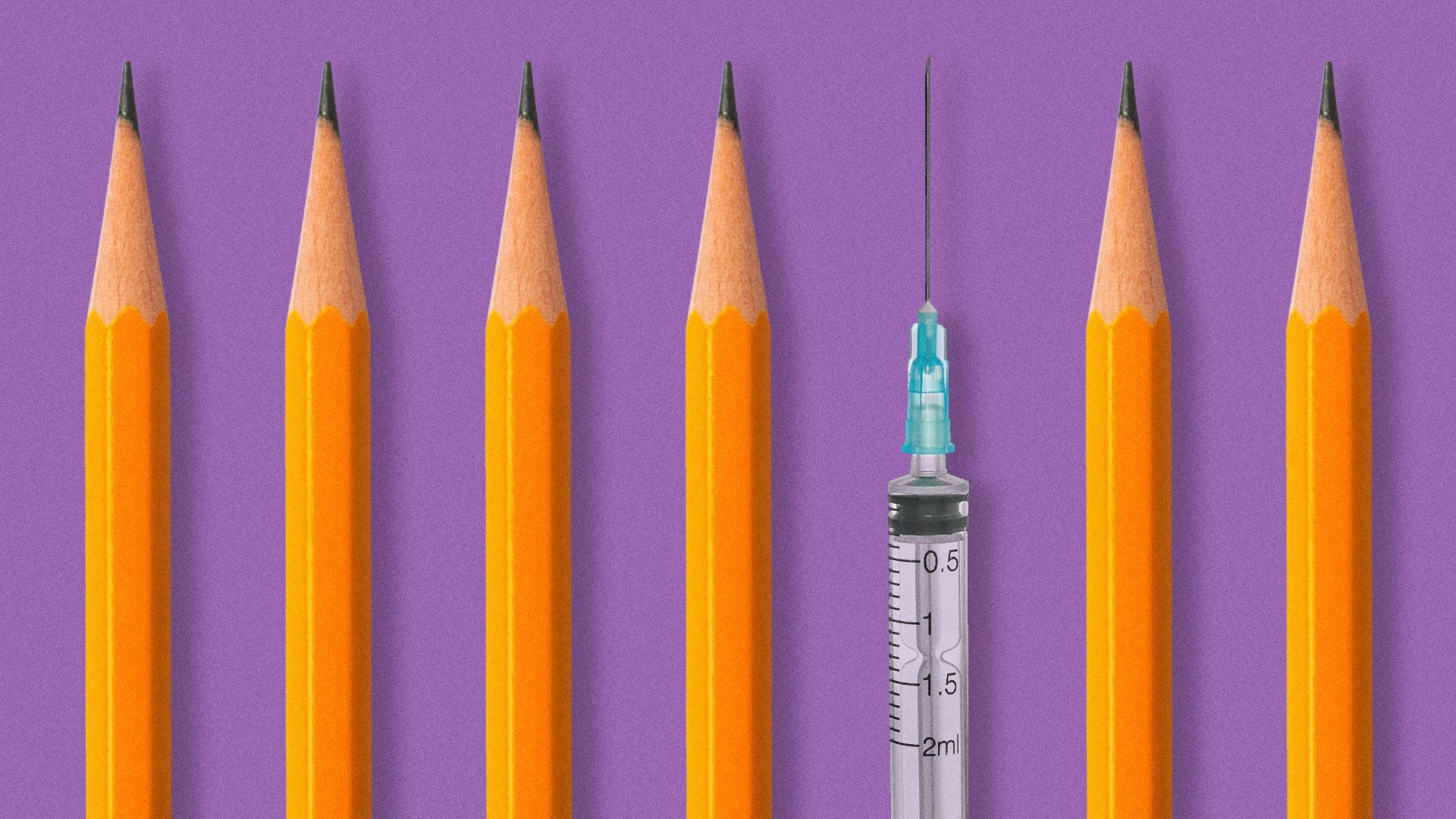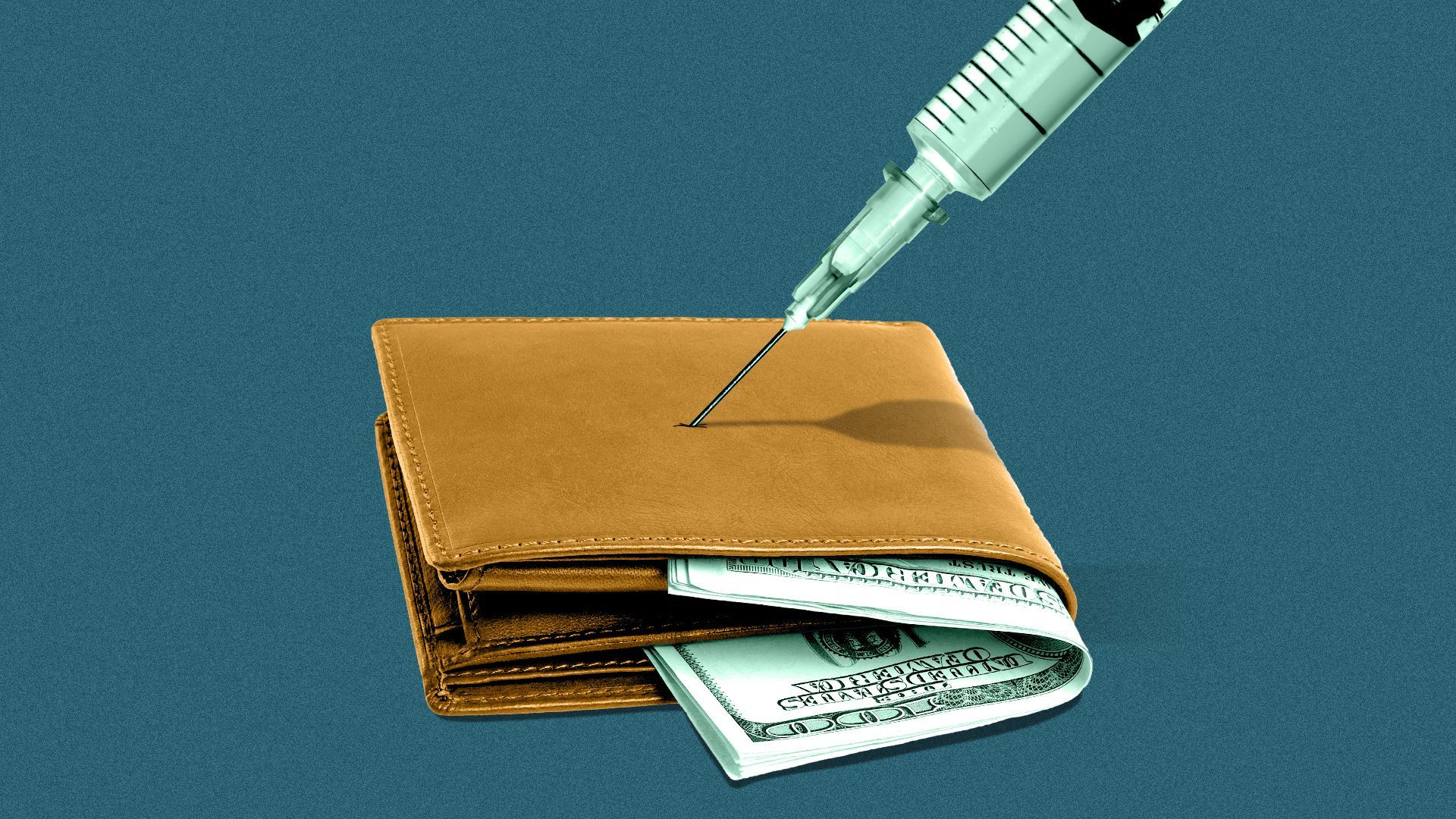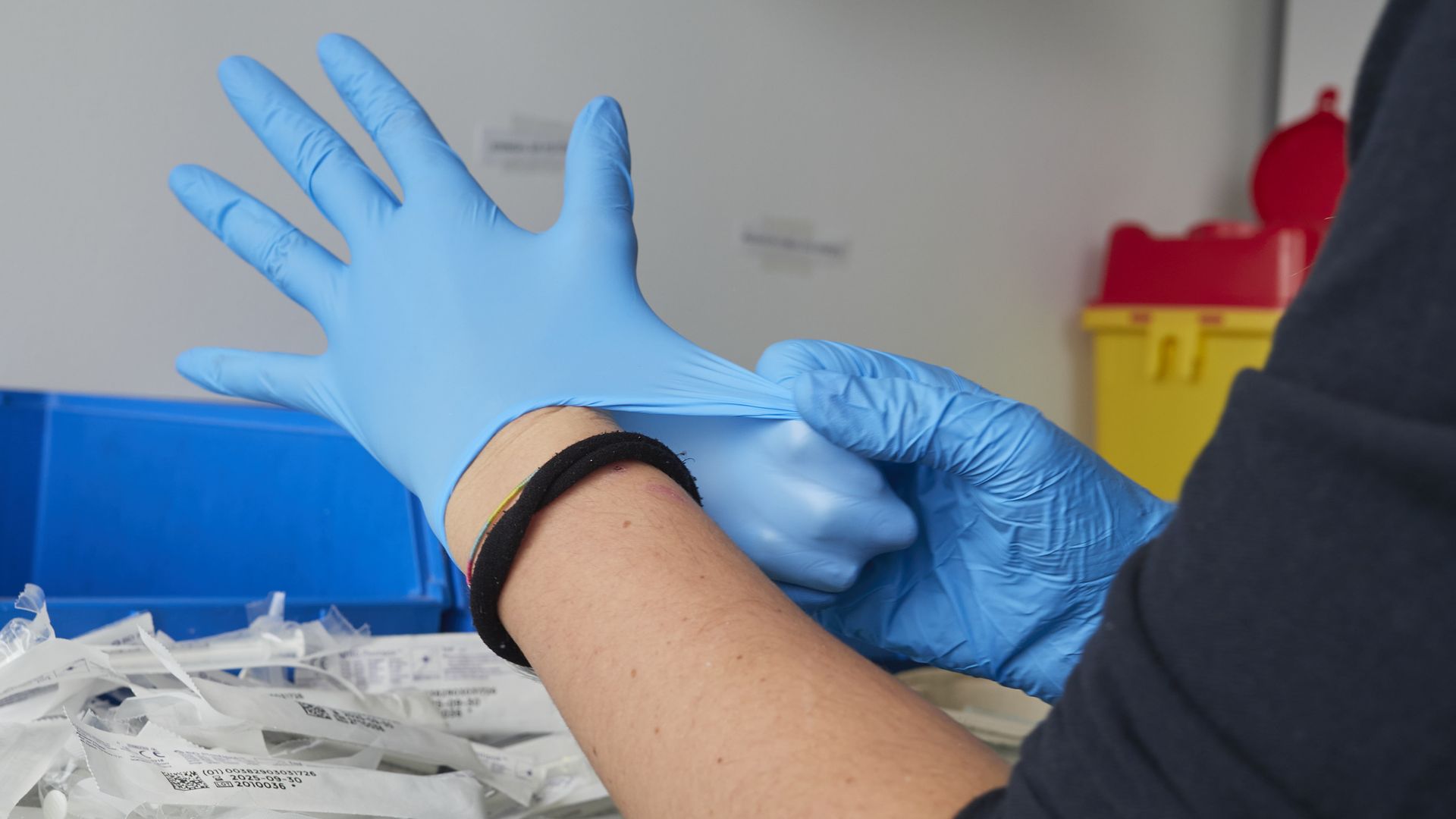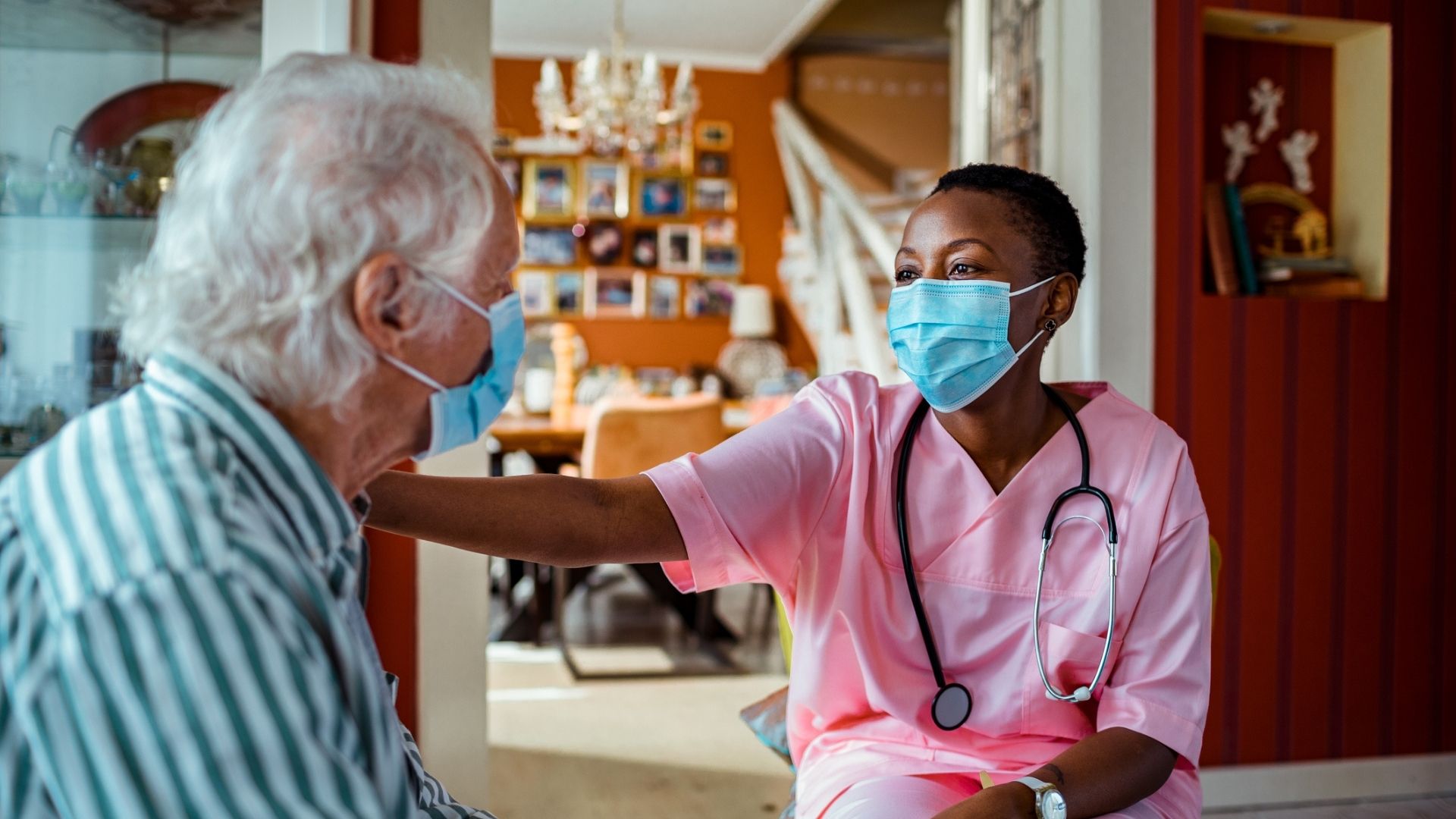Plus: Glove supply chain dangers | Monday, October 25, 2021
| | | | | | | Presented By PhRMA | | | | Axios Vitals | | By Tina Reed ·Oct 25, 2021 | | Good morning, Vitals readers. Today's newsletter is 813 words, or a 3-minute read. 💉 Situational awareness: Earnings reports are on tap this week from major hospital systems Universal Health Services and Community Health Systems are on tap this week. - Insurers Centene and Molina Healthcare, as well as telehealth company Teladoc, are also planning to release their Q3 earnings.
| | | | | | 1 big thing: Kids vaccines could be coming soon |  | | | Illustration: Maura Losch/Axios | | | | Millions of kids under 12 could begin getting COVID-19 shots "within the first week or two of November," NIAID director Anthony Fauci said on ABC News' "This Week With George Stephanopoulos" over the weekend. Why it matters: This would be a major milestone for getting approximately 28 million more kids protected as they prepare to gather with family during the holidays and spend more time indoors due to cold weather. - Kids accounted for more than a quarter of all COVID-19 cases in the U.S. as of Oct. 14, according to the American Academy of Pediatrics.
Driving the news: FDA regulators said Friday that the benefits of the Pfizer-BioNTech vaccine for children far outweigh the risks for children ages 5 to 11. - A key FDA advisory committee plans to meet Tuesday to discuss shots for that age group. The CDC's independent advisory committee will meet Nov. 2–3.
What to watch: The White House rolled out its plan last week for getting kids' shots to pediatricians and pharmacies, including modifying its packaging. - Clear messaging is an especially high priority after the rollout for booster doses for some adults faced criticism, Vox reported.
- "Our messaging on boosters has been a mess," Brown University's Ashish Jha said Friday on the SiriusXM show "Doctor Radio Reports."
Yes, but: While many parents are eager to get their gets vaccinated, there are lingering concerns about how many parents may not feel comfortable vaccinating young children. - A recent Ipsos poll found a third of American parents of children under 12 — including many who were vaccinated — said they would not get a vaccine for their child "right away."
- CDC director Rochelle Walensky acknowledged the challenge in an interview with Fox News' Chris Wallace on Sunday.
- There are a lot of parents "who are ready to get their children vaccinated right away and we know we have a lot of work ahead of us just as we did with the initial vaccine," she said.
Related: A choose-your-own COVID booster adventure |     | | | | | | 2. Disparities in hospitals' COVID funds |  | | | Illustration: Brendan Lynch/Axios | | | | Hospitals that received the most federal coronavirus relief money were disproportionately academic-affiliated and had higher pre-pandemic assets, Axios' Caitlin Owens writes about a new study published in JAMA Health Forum. Yes, but: Those hospitals were also more likely to have had higher numbers of COVID cases. Why it matters: The money was intended to keep hospitals afloat as they managed an onslaught of coronavirus patients while performing fewer elective procedures, which tend to be more lucrative. What they found: Critical access hospitals generally received less financial assistance, at least through the end of October 2020. - Hospitals received an average of $33.6 million in federal relief funding.
- But among the more than 900 hospitals included in the study, nearly 8% received more than $50 million.
The bottom line: "This disparity in funding may be of particular interest because many critical access and rural hospitals faced financial pressures even before the COVID-19 pandemic," the authors write. |     | | | | | | 3. Medical supply chain fraught with fraud |  | | | Photo: Eduardo Sanz/Europa Press via Getty Images | | | | The medical supply chain may have stabilized from some of its most severe shortages early in the pandemic, but it remains fraught with dangerous counterfeits, according to a CNN investigation. Why it matters: Tens of millions of counterfeit or secondhand nitrile gloves have reached the U.S. since the beginning of the yea. Those would unsafe for any use — let alone in health care settings. - In some cases, gloves that are soiled or stained with blood are being cleaned and resold as sterile nitrile gloves, per CNN.
- In other cases, gloves that are low-quality latex, or vinyl gloves, are stuffed into boxes labeled to be sold as nitrile gloves.
By the numbers: Nitrile gloves alone are a very fast-growing segment with the global market, reaching an estimated $14.1 billion in 2020 and expected to reach $57.1 billion by 2026, according to a recent Research and Markets report. - The area became ripe for problems when importation rules were relaxed amid the global COVID crisis.
The bottom line: There's "an endless stream of filthy, second-hand and substandard gloves coming into the US of which federal authorities, it seems, are only now beginning to understand the enormous scale," Douglass Stein of PPE Advantage told CNN. |     | | | | | | A message from PhRMA | | Fixing health care means putting patients first | | |  | | | | From out-of-pocket costs, to deductibles, to hospital bills – the most vulnerable patients face challenges. 3 in 10 Americans who have insurance still face a financial barrier to care. We need to make the cost of medicine more predictable and affordable. Learn more. | | | | | | 4. Quotes du jour: Paul and Fauci crossfire | | "The NIH is now admitting that there was gain-of-function research there and he lied about it." — Sen. Rand Paul, about NIAID director Anthony Fauci in an interview with Axios' Mike Allen on "Axios on HBO" over the weekend "He's absolutely incorrect. Neither I nor Dr. Francis Collins, the director of the NIH, lied or misled about what we've done." — Fauci's response to ABC News' George Stephanopoulos on Sunday about Paul's comments |     | | | | | | 5. While you were weekending |  | | | Illustration: Aïda Amer/Axios | | | - Google is still "all in" on health care, says chief health officer Karen DeSalvo. (CNBC)
- DeSantis touts bonuses for unvaccinated police who relocate to Florida. (Axios)
- Here's why developing countries can make mRNA COVID vaccines. (New York Times)
- "These findings boggle my mind": Audit rips apart Florida program created to aid brain-damaged kids. (ProPublica)
|     | | | | | | A message from PhRMA | | Fixing health care means putting patients first | | |  | | | | From out-of-pocket costs, to deductibles, to hospital bills – the most vulnerable patients face challenges. 3 in 10 Americans who have insurance still face a financial barrier to care. We need to make the cost of medicine more predictable and affordable. Learn more. | | | | 📫 Love this newsletter? Tell you friends and family to subscribe! |  | | It'll help you deliver employee communications more effectively. | | | | | | Axios thanks our partners for supporting our newsletters. If you're interested in advertising, learn more here.
Sponsorship has no influence on editorial content. Axios, 3100 Clarendon Blvd, Suite 1300, Arlington VA 22201 | | | You received this email because you signed up for newsletters from Axios.
Change your preferences or unsubscribe here. | | | Was this email forwarded to you?
Sign up now to get Axios in your inbox. | | | | Follow Axios on social media:    | | | | | |








No comments:
Post a Comment